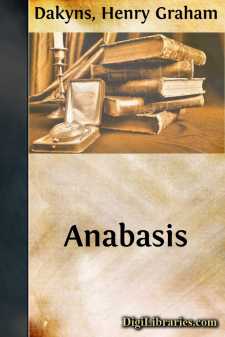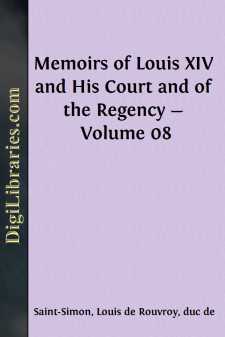Categories
- Antiques & Collectibles 13
- Architecture 36
- Art 48
- Bibles 22
- Biography & Autobiography 813
- Body, Mind & Spirit 142
- Business & Economics 28
- Children's Books 13
- Children's Fiction 10
- Computers 4
- Cooking 94
- Crafts & Hobbies 4
- Drama 346
- Education 46
- Family & Relationships 57
- Fiction 11828
- Games 19
- Gardening 17
- Health & Fitness 34
- History 1377
- House & Home 1
- Humor 147
- Juvenile Fiction 1873
- Juvenile Nonfiction 202
- Language Arts & Disciplines 88
- Law 16
- Literary Collections 686
- Literary Criticism 179
- Mathematics 13
- Medical 41
- Music 40
- Nature 179
- Non-Classifiable 1768
- Performing Arts 7
- Periodicals 1453
- Philosophy 64
- Photography 2
- Poetry 896
- Political Science 203
- Psychology 42
- Reference 154
- Religion 513
- Science 126
- Self-Help 84
- Social Science 81
- Sports & Recreation 34
- Study Aids 3
- Technology & Engineering 59
- Transportation 23
- Travel 463
- True Crime 29
Sort by:
THE PRINCESS OF CLEVES Grandeur and gallantry never appeared with more lustre in France, than in the last years of Henry the Second's reign. This Prince was amorous and handsome, and though his passion for Diana of Poitiers Duchess of Valentinois, was of above twenty years standing, it was not the less violent, nor did he give less distinguishing proofs of it. As he was happily turned to excel in...
more...
I THE POWER OF THE DEAD TO RETURN TO EARTH Though there is no period at which the ancients do not seem to have believed in a future life, continual confusion prevails when they come to picture the existence led by man in the other world, as we see from the sixth book of the Æneid. Combined with the elaborate mythology of Greece, we are confronted with the primitive belief of Italy, and doubtless of...
more...
by:
Mack Reynolds
The Place de France is the town's hub. It marks the end of Boulevard Pasteur, the main drag of the westernized part of the city, and the beginning of Rue de la Liberté, which leads down to the Grand Socco and the medina. In a three-minute walk from the Place de France you can go from an ultra-modern, California-like resort to the Baghdad of Harun al-Rashid. It's quite a town, Tangier....
more...
The aim of this little work is practical, and it is put forth in the hope that it may be useful to the general reader and to the student of philosophy as an introduction and guide to the study of Bergson's thought. The war has led many to an interest in philosophy and to a study of its problems. Few modern thinkers will be found more fascinating, more suggestive and stimulating than Bergson, and...
more...
Chester A. Arthur Chester Alan Arthur was born in Fairfield, Franklin County, Vt., October 5, 1830. He was the eldest son of Rev. William Arthur and Malvina Stone. His father, a Baptist minister, was born in Ireland and emigrated to the United States. Chester prepared for college at Union Village in Greenwich and at Schenectady, N.Y., and in 1845 entered the sophomore class of Union College. While in...
more...
by:
T. Phelan
INTRODUCTION The famous Ultimatum had gone forth to the world. War had come at last. We, in Kimberley, were in for it—though happily unconscious of our destiny until it was revealed by the gradations of time. Nothing awful was anticipated. The future was veiled. The knowledge of what was to come was brought home to us by a gradual process that kept us permanently sane. Dull Kimberley was to be...
more...
I. Darius and Parysatis had two sons: the elder was named Artaxerxes, and the younger Cyrus. Now, as Darius lay sick and felt that the end of life drew near, he wished both his sons to be with him. The elder, as it chanced, was already there, but Cyrus he must needs send for from the province over which he had made him satrap, having appointed him general moreover of all the forces that muster in the...
more...
by:
Kelly Freas
he advertising game is not as cut and dried as many people think. Sometimes you spend a million dollars and get no results, and then some little low-budget campaign will catch the public's fancy and walk away with merchandising honors of the year. Let me sound a warning, however. When this happens, watch out! There's always a reason for it, and it isn't always just a matter of bright...
more...
by:
Anonymous
Paul's Letter to the Colossians 1:1 Paul, an apostle of Christ Jesus through the will of God, and Timothy our brother, 1:2 to the saints and faithful in Christ at Colossae: Grace to you and peace from God our Father, and the Lord Jesus Christ. 1:3 We give thanks to God the Father of our Lord Jesus Christ, praying always for you, 1:4 having heard of your faith in Christ Jesus, and of the love which...
more...
Although, as we have just seen, matters were beginning to brighten a little in Spain, they remained as dull and overcast as ever in France. The impossibility of obtaining peace, and the exhaustion of the realm, threw, the King into the most cruel anguish, and Desmarets into the saddest embarrassment. The paper of all kinds with which trade was inundated, and which had all more or less lost credit, made...
more...











